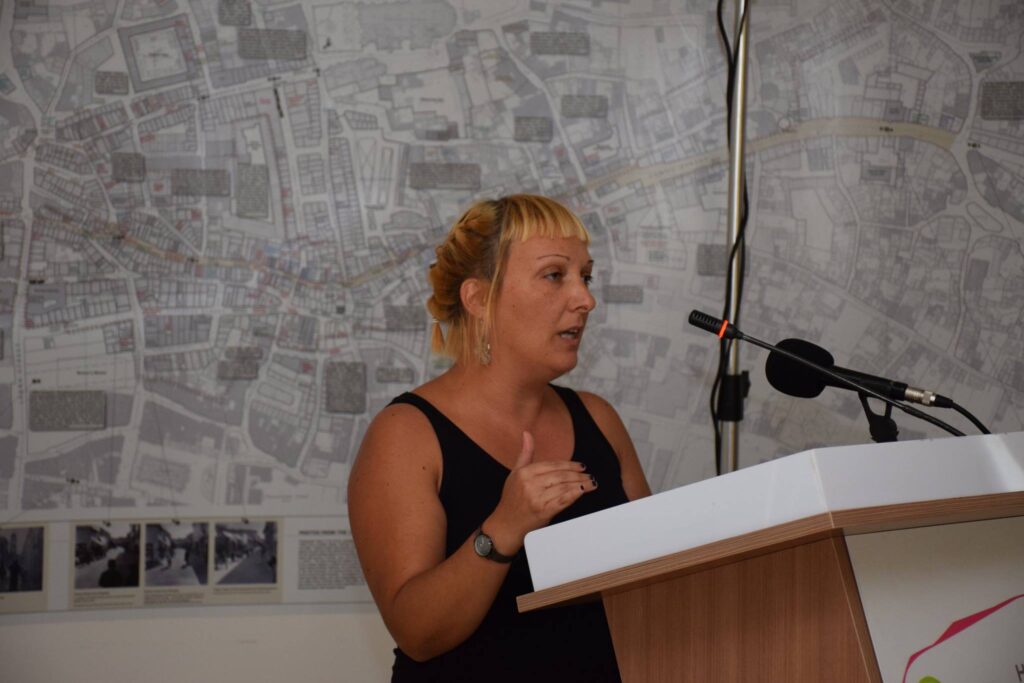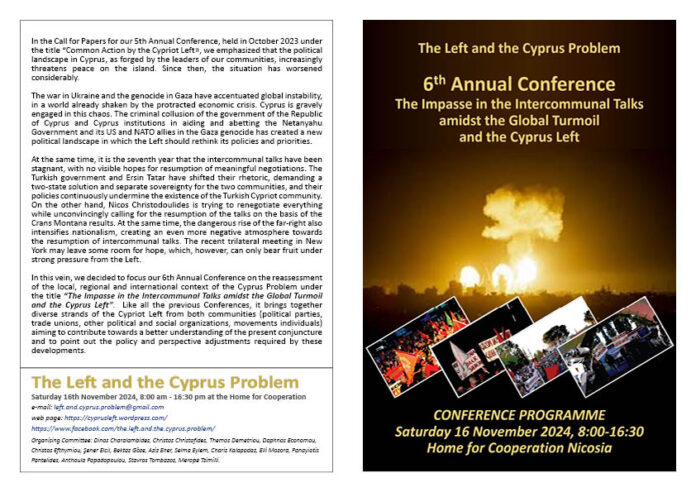This text is based on a speech made by the representative of New Internationalist Left (the ISp affiliate in Cyprus), Athina Kariati, at the 6th annual “The Left and the Cyprus Problem” Conference
The establishment in Cyprus, as elsewhere, makes decisions based on so-called “pragmatism,” aligning with its interests. Despite the Republic of Cyprus (RoC) joining the Non-Aligned Movement in 1961 and adopting a strong pro-Arab foreign policy, the establishment sought not to alienate the newly formed Israeli state, particularly given its ties with international imperialism.
The question of which “camp” the RoC belongs to—East or West—is not ideological but material. Membership in the Non-Aligned Movement was also influenced by the Arab world’s stance towards Turkey following 1974. While the Organisation of Islamic Cooperation supported Turkey during the war, many Arab states, including Syria and Algeria, later criticized Turkey after the second phase of the invasion. The PLO also condemned the actions of the Turkish army, which strengthened Greek Cypriot support for Palestine.
Successive right-wing governments promoted close relations with Palestine while maintaining a diplomatic, albeit strained, relationship with Israel. Notably, this relationship remained “icy” on both sides until 2011.
Today, the establishment has adopted a distinctly pro-Israel stance. Although they claim to support Palestinians, this assistance amounts to little more than a symbolic gesture, especially when compared to the substantial support provided by the RoC to Israel, the US (e.g., the recent use of Paphos airport by the US Air Force), and the UK (e.g., the ongoing use of Akrotiri bases).
This shift in alignment goes beyond the rhetoric of “belonging to the West.” The Republic of Cyprus, alongside Greece and the USA, is part of a formal alliance with Israel, known as the “3+1 Scheme.” This alliance serves the toxic economic and geopolitical interests of Greek Cypriot capitalism.
The energy-military cooperation between these four seeks to control and exploit the Eastern Mediterranean’s hydrocarbons, counter Turkey’s claims over the region’s energy resources (EEZ, hydrocarbons, electricity distribution lines), and reduce the EU’s dependence on Russian natural gas.
Unfortunately, this shift in the establishment’s stance bears the signature of the Left.
Between the founding of the Republic of Cyprus and the 1980s, the Left—represented by both AKEL and EDEK—was a staunch ally of the Palestinians. After 1974, EDEK developed close ties with the Palestinian resistance. EDEK members received military training in Palestinian camps in the Middle East, while Palestinian fighters conducted military drills in the Cypriot mountains with EDEK’s support.
AKEL also maintained strong ties with Palestinian organizations, and many Palestinians who migrated to Cyprus joined both EDEK and AKEL. Until 2011, any attack on Palestinians by Israel would provoke mass protests in Nicosia, often outside the Israeli embassy. Today, such protests are restricted to a location about a kilometer away from the embassy.
The years 2011 and 2012 marked a significant turning point. On February 16, 2012, for the first time in the history of the Republic of Cyprus and Israel, an Israeli Prime Minister—Benjamin Netanyahu—visited Cyprus. He was invited and met with then-President of the RoC, Dimitris Christofias.
Although subsequent right-wing governments have signed far more dangerous military agreements with Israel—engaging the island in joint military exercises and even provoking threats from Nasrallah that Cyprus could become a target—it was Christofias’ AKEL-led government that opened the door and laid the groundwork for this U-turn in relations.
The misguided claim by the Left, both south and north of the divide, that hydrocarbons represent “gas for peace,” has caused significant damage to the Left and the movement for the island’s reunification.
Since exploration began in 2011, four foreign militaries (the US, French, Israeli, and Russian) have been “protecting” the region, while Greek and Turkish forces came dangerously close to a military confrontation near Kastelorizo/Mais Island in 2020.
The military agreements signed with Israel have further deepened RoC’s bonds with the Israeli state. These agreements provide the establishment with a pretext—a “justification by obligation”—to remain complicit in the ongoing genocide we are witnessing today.
So, what are the dangers inherent in the tightening of ties between the RoC and Israel for the working-class people of Cyprus?
Some dangers are more obvious and have even been acknowledged by AKEL, such as the risk of Cyprus becoming a target, as threatened by Hezbollah. However, the most significant dangers lie in the rise of nationalism and the deepening division among working people on both sides of the island.
There is an urgent need to build a combative Left alliance between movements in Cyprus, the Eastern Mediterranean, and the broader Middle East. The working people of this island need a Left that prioritizes demands such as:
- “No war for oil and natural gas”
- “No more blood for planet-killing hydrocarbons; keep them under the seabed”
- “No to genocide, no to ecocide”
This means ending all trade and military agreements with Israel, including halting the exploration and exploitation of Eastern Mediterranean hydrocarbons and the Great Interconnector project.
Such actions would represent a sincere fight against the genocide of the Palestinian people and genuine support for the reunification struggle of Cypriots.
Ultimately, the allies of the Cypriot working class are not the tycoons of multinational corporations profiting from hydrocarbon extraction or the exploitation of Gaza after genocide. The true allies are the workers and oppressed peoples in Greece, Turkey, Palestine, across the Eastern Mediterranean and the Middle East, and around the world, who are currently being exploited to fund yet another war.
It is time for the Left to take bold and courageous steps in this direction.




